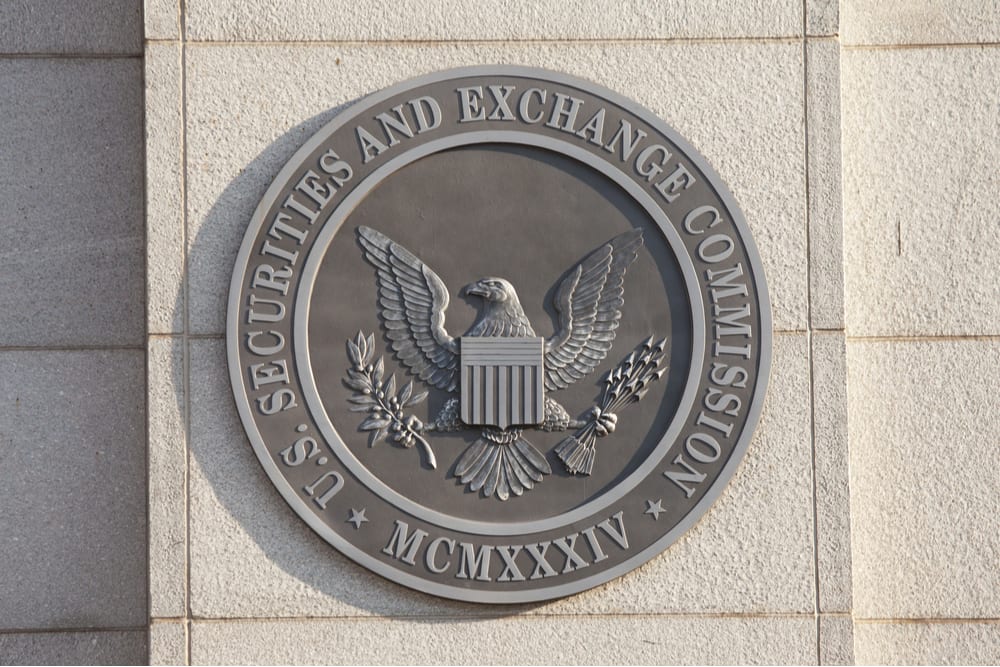SEC Signals Possible Legal Action Against Blockchain Platform Over Securities Violations
01.11.2024 9:30 2 min. read Kosta Gushterov
The U.S. SEC's legal enforcement actions against cryptocurrency companies have created significant challenges for the industry.
Recently, blockchain gaming platform Immutable revealed it may face a legal challenge from the U.S. Securities and Exchange Commission (SEC) over alleged securities law violations. The SEC issued a Wells notice following an initial meeting with the company, a rare move typically following prolonged discussions. This notice suggests the agency may pursue enforcement actions against Immutable, though the specific allegations remain unclear.
Immutable suspects the SEC’s inquiry is connected to the issuance and private sales of its IMX token in 2021, though it noted that details in the notice were sparse. The company acknowledged it was aware of related inquiries from the Department of Justice, though no formal actions have been taken.
Over the past year, several prominent crypto platforms, including Robinhood Crypto, Crypto.com, and OpenSea, have received Wells notices, with the SEC also enforcing actions against major firms like Coinbase and Kraken. SEC Chair Gary Gensler has urged crypto firms to register and adhere to regulations, stressing the need for investor protections.
Some in the crypto industry argue, however, that SEC regulations don’t fully apply to digital assets, which differ significantly from traditional financial products. Immutable maintains that IMX is not a security and has pledged to contest any charges, expressing confidence in its mission to bring digital ownership to billions of gamers worldwide and support blockchain’s potential to build a fairer internet.
-
1
Pump.fun Reportedly Planning Massive Token Sale Despite Revenue Drop
04.06.2025 20:00 2 min. read -
2
Brad Garlinghouse Rejects Rumors of Ripple-Circle Acquisition Deal
04.06.2025 19:00 1 min. read -
3
Changpeng Zhao Wants to Hide Your Liquidation Points — Here’s Why
03.06.2025 11:00 1 min. read -
4
S&P 500 Poised for Major Rally as AI Momentum and Technical Patterns Align
04.06.2025 15:00 1 min. read -
5
Robinhood Enters European Crypto Arena with Bitstamp Takeover
03.06.2025 15:00 2 min. read
ARK Invest Offloads Nearly 30% of Its Circle Position in One Week
Cathie Wood’s ARK Invest spent the past week lightening its stake in Circle Internet Group just as the stable-coin issuer’s share price went vertical.
Circle and Coinbase Stocks Surge as U.S. Senate Passes Historic Stablecoin Bill
Crypto markets welcomed a major policy breakthrough this week as the U.S. Senate passed the GENIUS Act, a bill designed to regulate stablecoins across the country.
Crypto Market May Be in Early Stages of Multi-Year Rally, Says Real Vision CEO
The current trajectory of the crypto market may be unfolding in a way that echoes the early stages of 2017, according to Real Vision CEO Raoul Pal.
Reddit Might Embrace Worldcoin’s Iris Scan to Verify Users Without Doxxing
Reddit is reportedly in talks to integrate World ID, a biometric identity system developed by Tools for Humanity, the startup backed by OpenAI’s Sam Altman.
-
1
Pump.fun Reportedly Planning Massive Token Sale Despite Revenue Drop
04.06.2025 20:00 2 min. read -
2
Brad Garlinghouse Rejects Rumors of Ripple-Circle Acquisition Deal
04.06.2025 19:00 1 min. read -
3
Changpeng Zhao Wants to Hide Your Liquidation Points — Here’s Why
03.06.2025 11:00 1 min. read -
4
S&P 500 Poised for Major Rally as AI Momentum and Technical Patterns Align
04.06.2025 15:00 1 min. read -
5
Robinhood Enters European Crypto Arena with Bitstamp Takeover
03.06.2025 15:00 2 min. read


